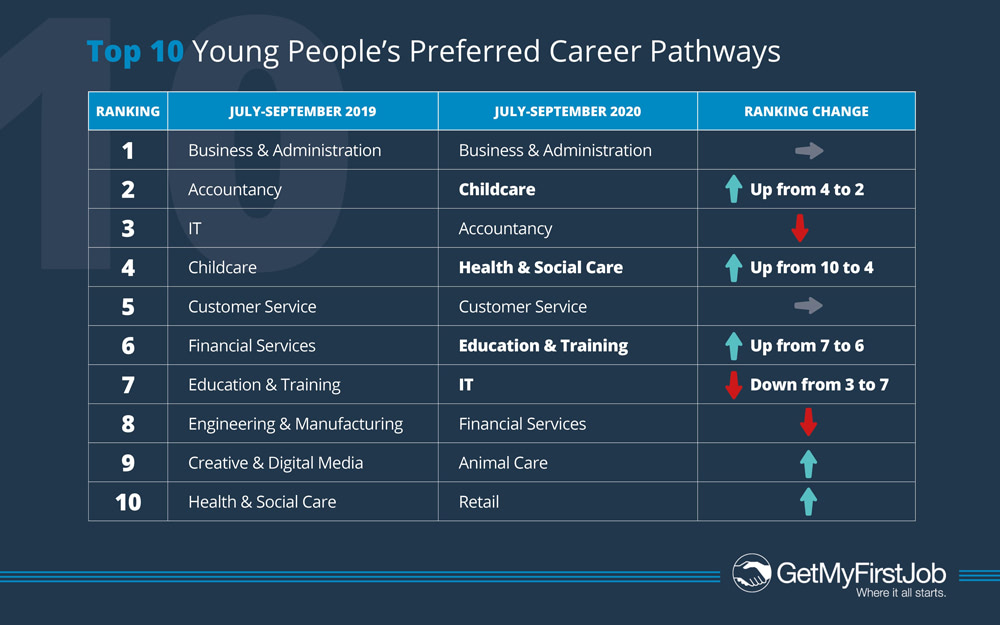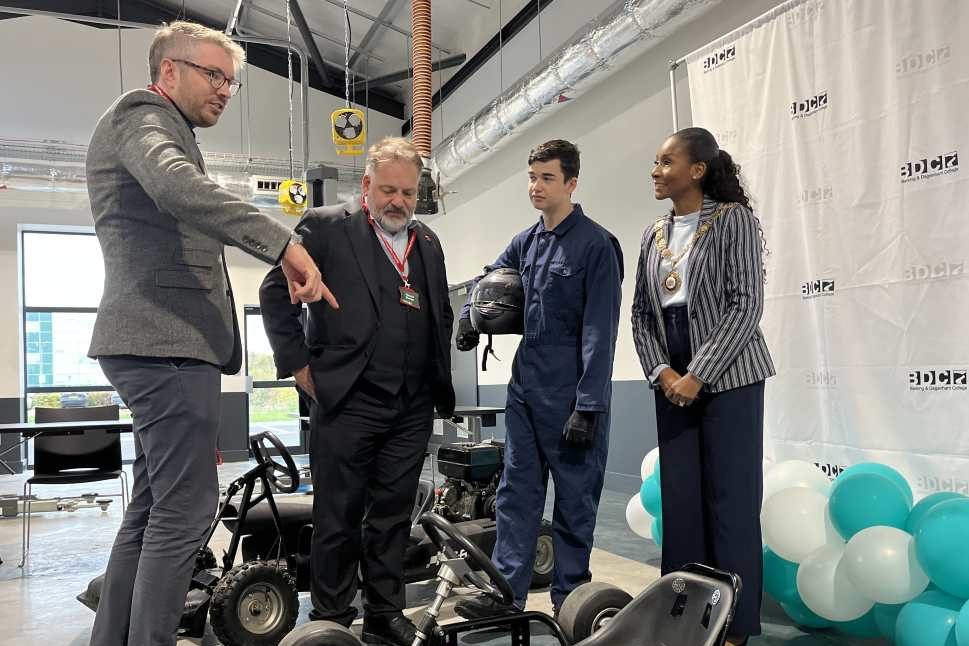Major rise in young people wanting to work in childcare, healthcare, or education

New figures revealed by young people’s jobs site @GetMyFirstJob show that coronavirus has had a major impact on career preference. Year-on-year there has been a huge rise in the proportion of young people wishing to work in childcare, health & social care, or education & training. Across these sectors, interest has risen by two-thirds (64%).
The figures form one of the most robust national assessments of post-education career preference. Over 25,000 school, college, and university leavers register with GetMyFirstJob every quarter and specify which sectors they would prefer to work in.
Comparing data from Q3 (July to September) 2019 to Q3 2020, childcare, health & social care, and education & training are the highest risers – now the second, fourth and sixth most popular career pathway choices for young people.
The largest percentage rise is in health & social care where the desire to work in this area rose by 79% year-on-year. Perhaps no surprise, given the crucial and inspiring role these workers have played in 2020. Interest in a career in childcare has risen by 66%, and in education & training by 50%.
IT is the most significant faller in the top 10 ranking, dropping from third to seventh. Despite the resilience and growth of this sector, it shows organisations wanting to recruit young talent need to ensure their message is clear, to engage the right candidates.

Commenting on the career preferences that have risen in popularity, Julie Hyde, Executive Director for Education & Training Strategy at awarding organisation NCFE, said:
“These findings provide a good deal of optimism for the long-term of these sectors, which are so vital for our economy and society. We cannot underestimate however the impact so far of the recruitment challenges faced by the childcare and health and social care sectors, struggling with a critical shortfall in qualified staff and a historical drop in the number of young people and apprentices being recruited to fill the gap.
“Coupled with the fact that this age group has already been disproportionately impacted by the pandemic, it is critical that we maximise the opportunity presented by the findings. This means supporting career development for young people, to satisfy the demand for skilled workers in a way the economy needs. We need to see an equal desire from employers to being open to recruit younger adults for these crucial roles.”
As a social enterprise, GetMyFirstJob helps connect young people – as well as their schools, colleges, and training providers – to employers searching for entry-level talent.
David Allison, CEO at GetMyFirstJob and TheTalentPeople, who co-founded the site following the last recession is optimistic about the opportunity for young people said:
“Despite the major challenges that exist at this unprecedented time, we’ve seen demand for young people increase in many areas. It’s reassuring to see that at a time when there is more need than ever before for those to join the caring professions, young people are rising to the challenge.”
Mark Botha, CEO of Paragon Skills – the UK’s leading health, social & childcare apprenticeship provider, noted:
‘’The big question we need to answer is how does the sector mobilise to support the needs of our economy and society. Everyone from government to employers talk about the digital skills gap across the UK and the need for education to support reskilling as the solution. The reality is that our care sector has been struggling with a skills gap…well, forever. We need a collective effort across the sector to both increase awareness of the challenges that we face and the risks if we don’t find a way to address them.
“The findings of the survey clearly highlight the desire and motivation of young professionals to support the sector, we now need the employers to further recognise this age group as part of the solution. The solution has to have sector specific skills and education at its core. Having the right skills, at the right time in the right location will go a long way to ensuring the future pipeline of talent for the sector.’’











Responses